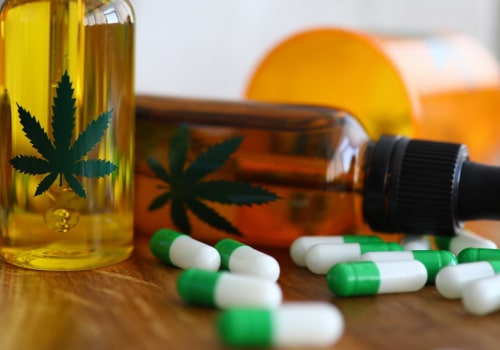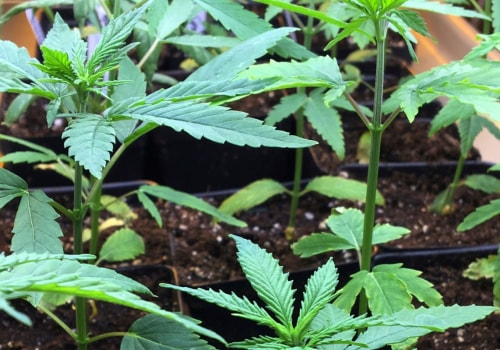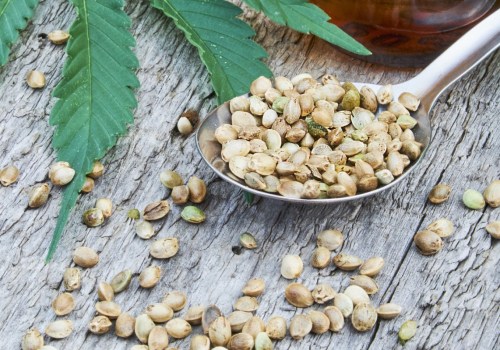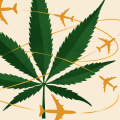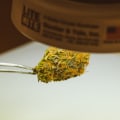Therefore, the PAPD does not issue tickets, seizes, or detains for this amount at New York airports. Despite More States Allowing Medical Marijuana, Traveling Between States With Cannabis May Leave Patients in Legal Limbo. As a subscriber, you have 10 gift items to give each month. Anyone can read what you share.
This fall, Sierra Riddle stood in line at security at Los Angeles International Airport with a bottle of tincture of THC oil, the psychoactive ingredient in cannabis, in her purse. Riddle, 31, a nursing assistant from southern Oregon, was traveling with her 9-year-old son Landon and uses medical marijuana to treat his severe nerve pain from chemotherapy, as well as his own chronic pain. He was on his way to a medical conference in Dallas to talk about his son's medical marijuana use and he was “praying and meditating that we would go through safety, when a Transportation Security Administration agent took the bottle out of his bag. Riddle's surprise, the officer told him that while it's illegal to fly with marijuana and he was required to call the police, instead, he would simply throw the bottle in the trash and not report it.
With 33 states now allowing some form of medical marijuana, it might seem that traveling with medical marijuana should be quite easy. But there is a difference between state and federal governments, and if you don't know the rules, traveling with medical marijuana could lead to arrest or, at least, a complicated legal gray area. Internationally, fines and punishments for possession of marijuana can be much more severe, including long jail terms or even execution for trafficking in large quantities. He says he's not interested in finding your medical marijuana.
In a state where medical marijuana is legal, Mr. Howell added: “You present your medical marijuana card, and law enforcement officials will generally simply return it to you. Nearly 20 states accept out-of-state medical marijuana authorizations, but reciprocity laws vary from state to state. Greyhound Lines bans alcohol and drugs “anywhere on the bus (even in your checked baggage).
If you decide to drive with medical marijuana, be discreet. Many marijuana arrests begin as trafficking stops, according to nonprofit advocacy group Americans for Safe Access. They recommend keeping cannabis locked in the trunk and never driving under the influence of alcohol. You should never carry medical marijuana in a state where it is not legal.
A starter kit for escaping the world. Updated its rules for flying with medical marijuana, allowing travelers to carry products such as cannabidiol oil that contain less than 0.3 percent THC. Cannabidiol, or CBD, is a molecule in cannabis that doesn't cause patients to get high. Passengers can bring F, D, A approved products.
In your checked or carry-on baggage. Don't forget all your official documents. Traveling within the United States with medical marijuana is legal if there is a reciprocity program. Reciprocity medical marijuana card states recognize and adhere to each other's laws, so your MMJ card will be valid in a reciprocal state.
However, the list of states with reciprocity is small and most states, including Florida and New York, do not recognize other states' medical cards. CBD oil and any FDA-approved cannabis product (defined as containing less than 0.3% THC) are approved to take to flights. Any cannabis product with a higher THC content remains illegal under federal law and, therefore, it is illegal to carry it on an airplane. At airports, TSA agents don't look for drugs, but if they see something like marijuana, they can involve law enforcement.
As long as your CBD product contains no more than 0.3 percent THC, or is approved by the FDA, you can take it on a flight. If the product is a liquid or food item, it must comply with the standard TSA carry-on baggage policy (3.4 ounces or less per liquid item, for example). The Transportation Security Administration (TSA) has approved flying with “medical marijuana and CBD oil. The decision comes after several people were arrested inside airports for flying with her.
As mentioned in Section II, reciprocity refers to laws that provide some measure of legal protection for non-resident medical cannabis patients. These laws generally require patients to carry documentation from their state in their home state program, such as their medical cannabis cards. Reciprocity is important for patients who travel, patients seeking specialized treatments outside their home state, and patients who need to remain in the care of friends or family out of state. But historically, many states have imposed residency requirements to participate in medical cannabis programs and benefit from legal protections.
The adoption of reciprocity provisions by more states in recent years has given medical cannabis patients and their caregivers the ability to travel more freely without worrying about access to medicines. However, not all reciprocity programs are created equal: some states provide only basic protections, while others give visiting patients the same rights as resident patients. It is important for patients to know where and how they can legally access cannabis while traveling. The Hawaii Department of Health has developed an instructional video and checklist for visiting patients and urges visiting patients to ensure that the island they are traveling to has a dispensary with the products they need, since traveling between islands could involve crossing a federal waterway.
This must be done before submitting an application. Detailed instructions for obtaining a temporary card are available on the Oklahoma Medical Marijuana Authority website. Unfortunately, marijuana is still classified as a Schedule I drug (as are heroin, LSD, and Ecstasy), which means that, although the drug is legal in Florida and several other states, it is still banned by the federal government. Please note that dispensaries will not be able to dispense medical cannabis to patients who visit you if the DC Department of Health determines that there is a shortage of medical cannabis or if the real-time electronic record system is inactive.
While many of the states with medical cannabis programs offer some form of reciprocity to the medical cannabis patients they visit, which means that they recognize the protections that other states have given to these patients, traveling across state lines with any amount of cannabis is also a federal crime. While Floridians are eligible for treatment with medical marijuana, traveling with cannabis can be a little tricky. Despite federal laws in place, numerous states have lifted restrictions and passed laws that allow the use and administration of marijuana for qualifying medical conditions. Some major airlines, such as American Airlines, have banned all marijuana (including medical use) on flights.
Experience the benefits of medical marijuana safely and legally in your home state by applying for your MMJ card with Leafwell. Making no distinction between medical marijuana and recreational cannabis, Bali government sentences people trapped with marijuana to a minimum of four years in prison. Participating in your state's medical marijuana program directly violates federal law and, if it ends up in court, the federal justice system prohibits a “medical defense.”. Therefore, medical cannabis patients visiting other locations in the United States can access Rhode Island compassion centers (dispensaries) with their home state medical cannabis cards and another form of photo identification issued by their home state, such as a driver's license.
. .

